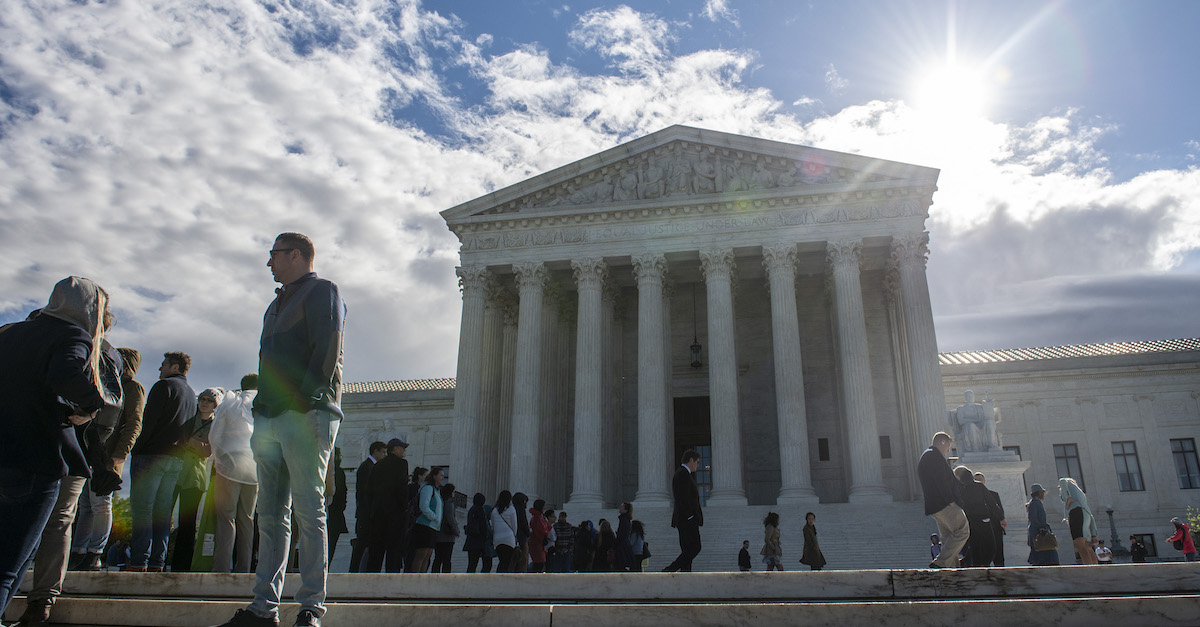
Just over a year out from the 2020 presidential election, things are getting real in the Battle of the Electoral College.
Colorado filed a cert petition with SCOTUS on Wednesday, asking whether electors (the actual people who make up the electoral college) really have to vote for the state’s popular winner. Ultimately, if the Court answers in the negative – meaning that individual electors are permitted to exercise their own discretion – it could mean the beginning of the end of the electoral college system.
Colorado is appealing its loss at the Tenth Circuit Court of Appeals in the case over Micheal Baca’s “faithless electing.” Baca was a Hillary Clinton-hating Democratic elector in Colorado; in 2016, he cast his ballot for Ohio’s then-Gov. John Kasich (R), despite Clinton having won Colorado’s popular vote. Colorado’s Secretary of State then removed Baca as an elector, threw out his vote, and replaced him with a Hillary voter. Litigation ensued.
The Tenth Circuit upheld Baca’s right to vote, with Judge Carolyn McHugh writing that the Framers use of the word “vote” implied an expectation of independent judgment on the part of electors.
A similar case is proceeding in Washington State, where then-19-year-old elector Levi Guerra and two others declared themselves “Hamilton Electors.” They refused to cast ballots for Clinton (the popular winner), and instead, voted for moderate Republicans as part of a larger scheme to keep Trump out of office. The Hamilton Electors were fined, and Harvard law professor Lawrence Lessig represented them in their resulting lawsuit.
Colorado now urges SCOTUS to settle disputes over all things “faithless elector.”
Unelected, unaccountable presidential electors should not be allowed to decide the presidential election without regard to voters’ choices and state law. That’s why we are vigorously appealing the “faithless elector” decision to the US Supreme Court. #copolitics #SCOTUS
— Jena Griswold (@JenaGriswold) October 16, 2019
In its petition, Colorado argues that the Tenth Circuit’s decision in favor of Micheal Baca “deepens an existing split over whether presidential electors are state officers.” Ooh, good one. SCOTUS usually can’t resist getting involved when someone asks it to draw the line between state and federal turf.
Colorado also argues that allowing electors to exercise their own discretion would amount to some kind of “new” constitutional right, and that there’s nothing remotely unconstitutional about requiring state electors to cast votes for the popular vote winner.
But Colorado’s most persuasive argument for bringing in SCOTUS may not even appear in petition for certiorari. The unspoken truth looms large: The Election is Coming. Faithless electing has already been an issue in 2016; it will happen again in the future, and may even gain additional momentum.
Asking SCOTUS to rule on faithless election now is perfect timing. The Court could rule in the abstract – without its decision having direct and immediate impact on the outcome of a presidential election.
Many Americans view the electoral college as nothing more than a confusing and arcane quirk of American government. But at least some experts aren’t so quick to see it eroded. Election law expert Rick Hasen called the matter a “well-intentioned, audacious gambit” that “could backfire spectacularly.”
Hasen argues that if the Supreme Court concluded that electors are free to vote their consciences, the process of choosing those electors will become enormously politicized. What’s more, potentially rogue electors would be lobbied incessantly during every election, and the voters would have less confidence in the value of their votes. The chaos that would ensue would be pervasive and devastating. As Hasen put it, “This is no way to pick a president or run a country.”
Right now, Colorado is asking. We’ll keep you posted as SCOTUS considers whether to enter this uniquely American fray.
[Image via Eric Baradat/AFP/Getty Images]